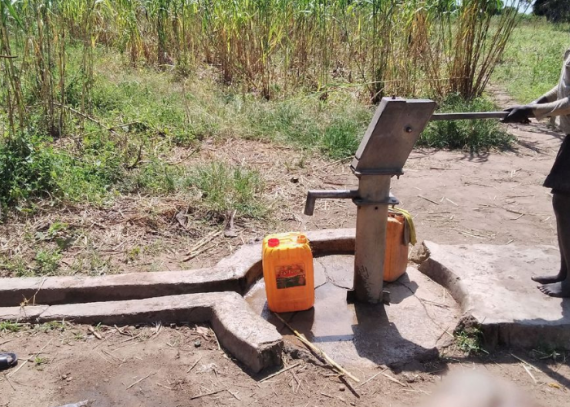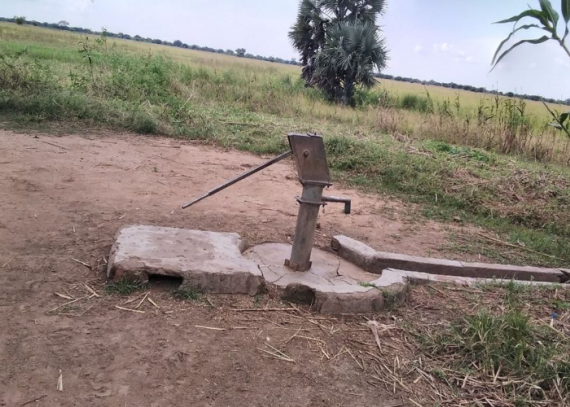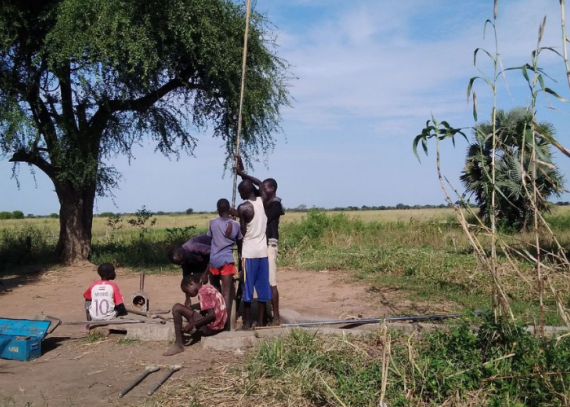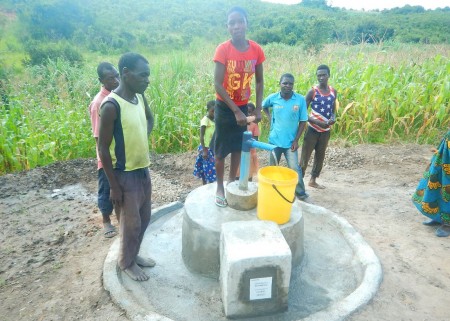Wathlang Community, Warap State, South Sudan
Donated by The Customers of Coastal Food Services and ESS Through Purchases of Cases of Water
“My name is Ater Athuai Deng, I am a 22-year-old girl residing at Wathlang along the southern part of Jur Riverside, I sat for secondary school leaving examination of South Sudan and currently depend on subsistence farming with family members as our main activity. The needs beyond our capacity are being provided by other relatives, especially my uncle who always stands on my side to continuously support my studies.
In our village, when the Wathlang borehole was broken, all residents were taking unclean water from the river for seven days, even if they knew that the river water was not safe for drinking water, there was no other choice apart from repairing it because neighboring boreholes are at distances of one and half hour with routes filled with rainwater.
The entire village of Wathlang, with 52 households, started contributing fees so that the borehole could be repaired as soon as possible. Unfortunately, one of the water committee members who had kept some amount of money was left for one week of training. Upon his arrival from the training on the 6th day of the borehole’s breakage, he was approached by the committee to sum up the collected fee and immediately called the mechanics, who later turned up on the 7th day. They diagnosed the borehole where the pump cylinder was found to have been extremely damaged. Hence, the old pump cylinder under the water committee’s care was tested and found to be working very well. It was, therefore, installed, and the borehole was fixed. A fee was paid to the mechanics by the committee as repair fees and assured the mechanics that they would still carry on with contributions in order to raise other fees for the new pump cylinder to spare the old one installed into the borehole.”
Ater Athuai Deng, Community Member.
This project was undertaken as part of our campaign of projects that actively reduce carbon emissions. This project helped the community save their much needed wood which was previously being burnt daily to boil water. This project has also eliminated the many thousands of hours previously spent on walking to collect water.
- Population: 520
- GPS: 8.591318, 28.459861
- Year: 2024
- Sponsor: Coastal Food Service ESS






